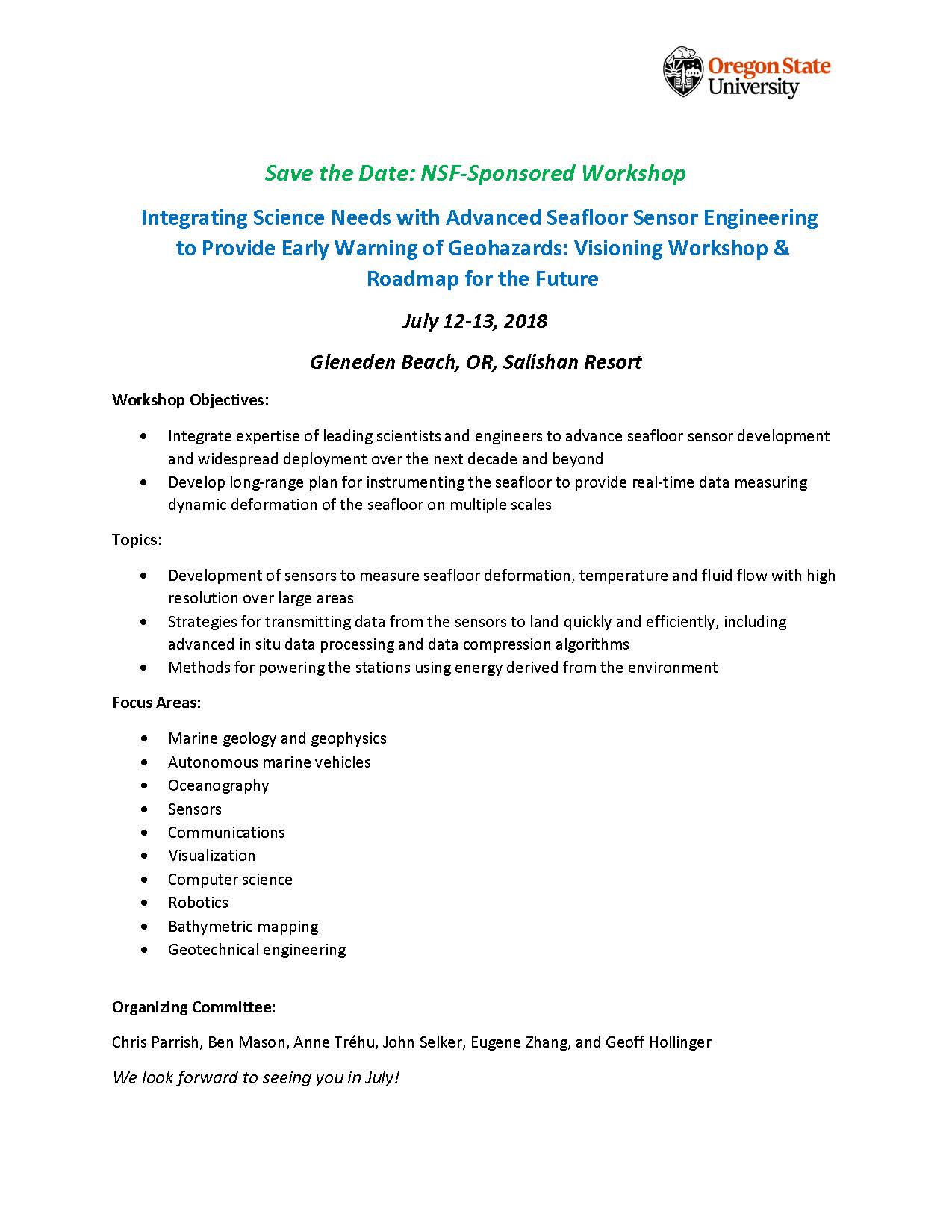Dear Colleagues,
Please consider attending the upcoming USSSP-IODP workshop:
The workshop will focus on developing proposals for scientific ocean drilling in the Northern Pacific, Bering Sea and Western Arctic Ocean region, including GeoPRISMS primary site, the Alaska-Aleutian subduction zone. The drilling platform, JOIDES Resolution, is scheduled to operate in the Northern Pacific in 2023. To ensure that the ship is used to best advantage, now is the time to develop proposals that could be linked through regional drilling strategies.
Our goal is to initiate multiple proposals around GeoPRISMS-related themes such as geohazards and volatile cycling, as well as other themes including ocean gateways, ice histories at transition zones, biosphere and climate.
The workshop is open to U.S. and international participants. The deadline for U.S.-affilitated scientists to apply is June 17, 2018. A limited number of travel grants will be available. Graduate students, early career scientists and those new to IODP are encouraged to apply.
For more information and to apply, visit the workshop website: http://usoceandiscovery.org/workshop-sea-norp/
Thank you,
Workshop Conveners: Lindsay Worthington (UNM), Bernard Coakley (UAF), Matthias Forwick (UiT – Tromsø), Juliane Mueller (Alfred Wegener Institute), Summer Praetorius (USGS), and Kristen St. John (JMU)
Workshop Science Committee (partial list): Jessica Larsen (UAF), Terry Plank (LDEO), Donna Shillington (LDEO), Harold Tobin (Wisconsin)


